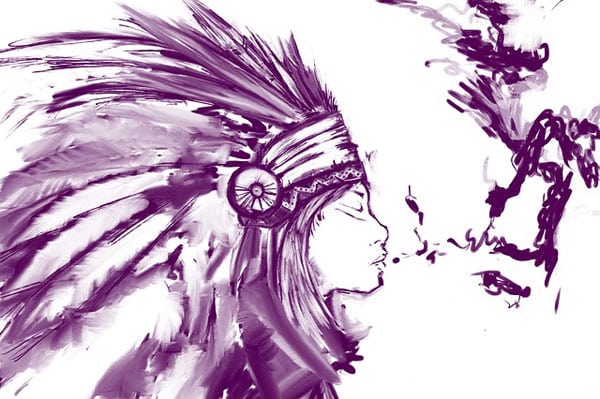New First Nations Report Looks at Shifting Narratives around Native People
|

June 29, 2018; Indian Country Today
The stories mass media tells about Native Americans tend to be inaccurate, if any stories are told at all. New, old, and emerging sources present narratives that are both conflicting and inaccurate. We are shown images of people who are impoverished and people who have become rich from casinos; the noble warrior and the savage warrior. Last week, a report was released by a project that has set out to identify, understand, and strategize to dispel these images.
As reported by Indian Country Today, First Nations Development Institute and Echo Hawk Consulting released a report that shares research conducted with support from the Kellogg Foundation, the Robert Wood Johnson Foundation, and others. “Reclaiming Native Truth: A Project to Dispel America’s Myths and Misconceptions” looks at how Native Americans are perceived and some ways to change and improve the accuracy of those perceptions.In its coverage of the report, Indian Country Today highlights four takeaways:
- Discrimination: Only 34 percent of Americans believe that Native Americans face discrimination. On the other hand, images of wealth from Indian gaming and free hand-outs by the federal government fuel bias.
- Narratives: According to the research, few people have experience with Native Americans, but instead accept negative images others present. Oddly, these negative perceptions rise with proximity to Native communities. Only 56 percent of those living near Native communities feel that the federal government should do more to help, compared to 64 percent of those who live further away.
- Invisibility: Many consider Native Americans part of a “romanticized past.” Their invisibility in almost all aspects of US society worsens this.
- Desire for Complete History: People are aware that they do not know enough about Native American culture and history, and most (78 percent) want to learn more.
The latter guide presents a framework for allies to tell stories and explore issues using four specific elements: values, history, visibility, and a call to action. It shares some example stories structured in that fashion.
Here is an example from the report, stressing the importance of upholding the Indian Child Welfare Act:
- All children deserve to be raised by loving families in supportive communities, surrounded by the culture and heritage they know best. In Native cultures, family is defined very broadly. Everyone plays an active role in raising a child and is ready to help in times of crisis. (Values)
- But when the U.S. child welfare system was created, it was biased against raising a child in this way—as a community. As a result, the US government removed Native children from their families—not because of abuse or neglect, but because of this communal way of being. The Indian Child Welfare Act (ICWA) was passed in 1978 to prevent Native American children from being unjustly taken away and adopted outside their culture. (History)
- Today, however, ICWA is not consistently respected. (Visibility)
- We need to uphold and improve the law to make sure we are doing what is best for Native children. (Call to action)






No comments:
Post a Comment
Please leave a comment.